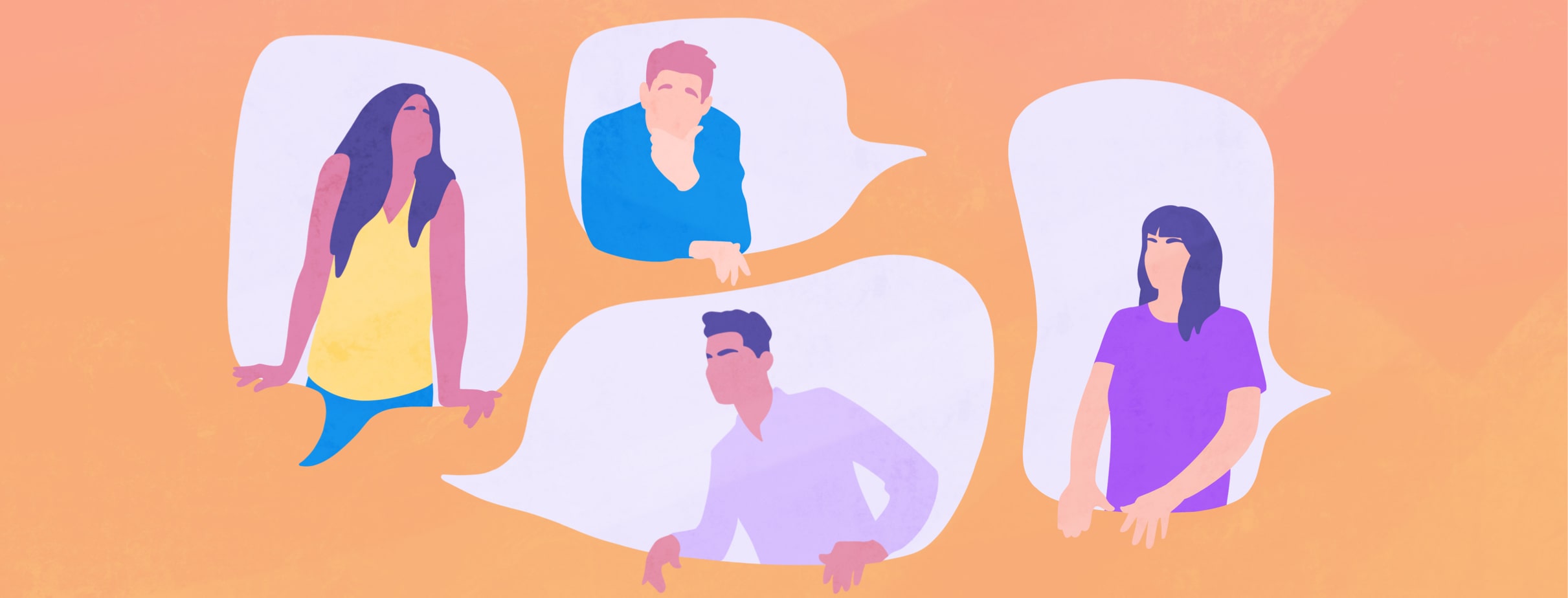Community Views: What I Wish Others Knew About Chronic Kidney Disease
Chronic kidney disease (CKD) is a long-term health condition in which the kidneys are unable to remove extra water and waste properly. Since there are often no symptoms in the early stages of this disease, being diagnosed with CKD can come as a huge shock. Many people who live with kidney disease also live with other health conditions such as diabetes and lupus.1
In honor of World Kidney Day, we asked our Chronic-Kidney-Disease.net, Type2Diabetes.com, and Lupus.net Facebook communities what they wish others knew about living with CKD. More than 170 people responded! Here is what they said.
Others may not see it, but I feel it
From the outside, other people do not always understand the realities of life with chronic kidney disease — managing fatigue, brain fog, and monitoring diet, all while possibly getting dialysis. It can be overwhelming to say the least. Those living with kidney disease know that CKD takes a toll mentally, physically, and emotionally, even if other people can’t “see” it.
“Just because we don’t look like we’re sick, we are, and we are exhausted all of the time.
“What's wrong inside doesn't always show on the outside.
"You may not look sick but you are. You’re also dealing with a lot."
Many times, friends and family may not understand the nature of living with CKD. Some types of kidney disease can be treated. But for most people with CKD, there is no cure, which can be difficult for loved ones to understand.1
“I think people want you to be how you were, like it was a bad cold and you should be over it by now.”
Start a Forum
Kidney disease affects all aspects of a person’s life
Many community members discussed the wide-ranging symptoms of chronic kidney disease, from fatigue to brain fog to itchy skin. These symptoms make living with CKD really challenging.
“I wish people understood how physically exhausting it is. I’m always tired.”
“I itch terribly. I'm exhausted and nauseous all the time and I can't sleep.”
“I just wish everyone understood the tiredness that goes along with it.”
“It's so physically exhausting for the person who has it and emotionally exhausting to the family of the person who has it.”
Finding the right team of doctors
The type of doctor who treats kidney disease depends on the stage of your disease and what caused it. The kidneys perform many functions, and many people who live with CKD also live with other health conditions. So, many medical professionals may be involved in your care.2
It’s important to find a team of doctors who will listen to you. If a doctor isn’t taking your concerns seriously, it might be time to find a new doctor. We must play an active role in our own care!
"(If you also live with lupus) make sure you have a nephrologist and a rheumatologist who talk to each other about your situation. And make sure you stay up to date on your own labs. You are your own best advocate!"
"It helps tremendously if you have access to an electronic health records app like MyChart so that all doctors can see what’s happening."
"I have a great team of doctors/specialists. Having my doctors all on the same page definitely helps."
“See your specialist(s) and keep an eye on your numbers.”
Maintaining a kidney-friendly diet can be hard
Diet and nutrition play an important role in keeping kidneys healthy. If you have CKD, your diet is even more important. Certain foods are not good for your kidneys and force them to work harder.3
Our community members know that while maintaining a kidney-friendly diet is important, it is much easier said than done.
“I've been trying to eat better, but it can be difficult. Especially since I've been so nauseated.”
“I wish people understood how difficult yet critical it is to monitor sodium, potassium, phosphorus, etc. in food intake.”
“That diet is everything. Without a good diet there can be consequences.”
“It’s difficult juggling what you should and shouldn’t eat!”
We need resources for people in early stages of CKD
One community member also shared how frustrating it is that there doesn’t seem to be any education in their area about slowing the progression of CKD in its early stages before treatment is needed.
“What frustrates me is that there doesn't seem to be any classes in my area for people in the earlier stages to help us to slow down the progression. I've asked the 2 kidney doctors that I've seen and was told that the classes they give are for those already receiving dialysis to help them with their diet and nutrition. What about those of us that don't want to have to go to dialysis? It seems like they don't want to ‘prevent’ but rather they prefer to ‘treat.’”
Thank you for being here!
We want to thank the members of our community, along with the members of the Type 2 Diabetes and Lupus communities who shared with us. Your words help others with chronic kidney disease feel less alone and continue to raise awareness about this condition that impacts so many people. We are so grateful for you! 💚
Check out our partner communities Type2Diabetes.com and Lupus.net!

Join the conversation